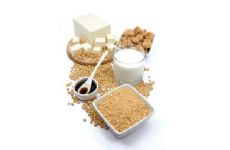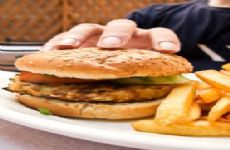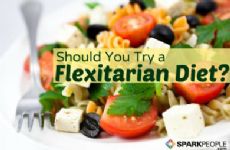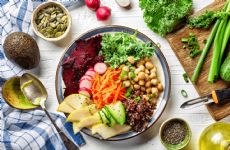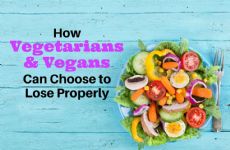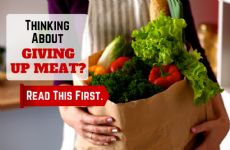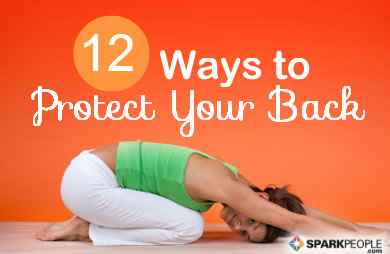|
In college when I began to really study up on nutrition, I was interested in all kinds of diets. Although health was important to me, I was also desperate to lose weight. At the time I was vegan (yes, it's totally possible to be an overweight vegan!) and someone turned me on to the raw diet. While vegan eating is one kind of diet and lifestyle (that eschews all animal products and only eats plant-based foods), the raw diet takes veganism a step further. While there are raw styles of eating that do involve eating raw meat or raw eggs, this blog will specifically talk about the raw vegan diet. The traditional "raw" foods diet is a strict vegetarian (vegan) diet that excludes all animal products (meat, dairy, eggs, etc.) and processed foods. It is high in raw fruits and vegetables, but can also include some "uncooked" (often soaked) grains, legumes, nuts, seeds, sprouts, and dehydrated or dried foods (like raisins). They avoid other processed foods such as sugar as well. Raw foodists believe that heating foods over 116 degrees Fahrenheit destroys health properties, enzymes, vitamins, etc. and theorize that cooked food "toxic" to the body. Most raw food advocates also believe in eating only organically grown foods. Generally speaking, all of the foods in the raw diet are nutritious and wholesome. While adding more unprocessed foods to your diet is certainly healthy, please keep in mind that many of the benefits that raw foodists tout about their diet are anecdotal claims that have NOT been backed up by scientific research. Here are a few more of the myths and truths of the raw food diet: Claim: A raw food diet will result in weight loss. Following a raw food diet will allow you to eat as much food as you want and still lose weight. Fact: For many people, giving up processed and sugary foods and eating more whole fruits and vegetables can certainly result in weight loss. But it can also be difficult to get all the calories one needs on a raw vegan diet alone. It's also important to note that too much of any kind of food, raw, vegan, or otherwise, can still result in a calorie surplus that inhibits weigt loss and can lead to weight gain. Generally speaking, any diet that claims to allow you to eat as much as you want and still lose weight is usually too good to be true. Claim: Raw, plant-based foods contain all the nutrients, protein, and vitamins you need. Fact: When you limit your choices to only raw foods, you are eliminating a tremendous amount of other types of foods, some of which are healthy, and others that are not healthy. Yes, fruits and vegetables contain small amounts of protein, but it's very difficult to meet your protein needs, let alone your needs for key vitamins and minerals (such as vitamin B-12, which occurs naturally in animal products) and minerals like calcium and iron. Even vegetarians and vegans who eat cooked foods, grains and other food groups that raw foodists omit can run into risks of nutrient deficienes. Here are the key nutrients that vegetarians tend to skimp on (and some tips on where to get them). Sure, it may be possible to meet all of your nutritional needs on a raw vegan diet, but it will be very difficult for most people. Claim: Heat can destroy health-enhancing properties of food. Fact: While it's true that heating or cooking food can destroy some vitamins, heat can also enhance certain health properties of food. Clinical research shows, for example, that lycopene (the healthy phytochemical found in red foods like tomatoes that protects against certain cancers) is greater in processed foods and better absorbed by the body from heated foods. Heat also destroys illness-causing bacteria. These are just a couple of examples showing that the raw-only mindset doesn't always tell the full story. The raw food diet is no miracle diet. Not only is it extremely difficult to stick with, but it really limits the foods and variety that you can get. The raw food diet is also risky and can result in nutrient deficiencies, food poisoning (from sprouts and uncooked produce), and lower bone density. Your best bet for weight loss and overall health is to eat a healthy, balanced diet that includes all foods in moderation. A much safer and healthier approach is to avoid or limit highly processed foods. A diet that limits or avoids unhealthy foods and food preparations, that is also high in both raw and cooked fruits and veggies, and contains moderate amounts of whole grains, lean protein sources (vegan or otherwise), and calcium-rich foods like dairy or fortified soy milk is ideal for human health. A great book that dispels many of the claims of the raw food diet is The Raw Secrets: The Raw Vegan Diet in the Real World. Be sure to discuss this diet with your health care provider first, in addition to getting plenty of unbiased research (not unsubstantiated personal claims) about its effects. If you want to try adding more raw foods to your diet in general, that's a very healthy approach! A fun raw "cookbook" is Raw: The Uncook Book by Juliano Brotman. His recipes are both beautiful and tasty, although many are time-consuming and contain obscure ingredients. This blog has been reviewed by Becky Hand, M.Ed, Licensed & Registered Dietitian. |
Related Entries
More From SparkPeople
|


.jpg)
.jpg)
.jpg)


